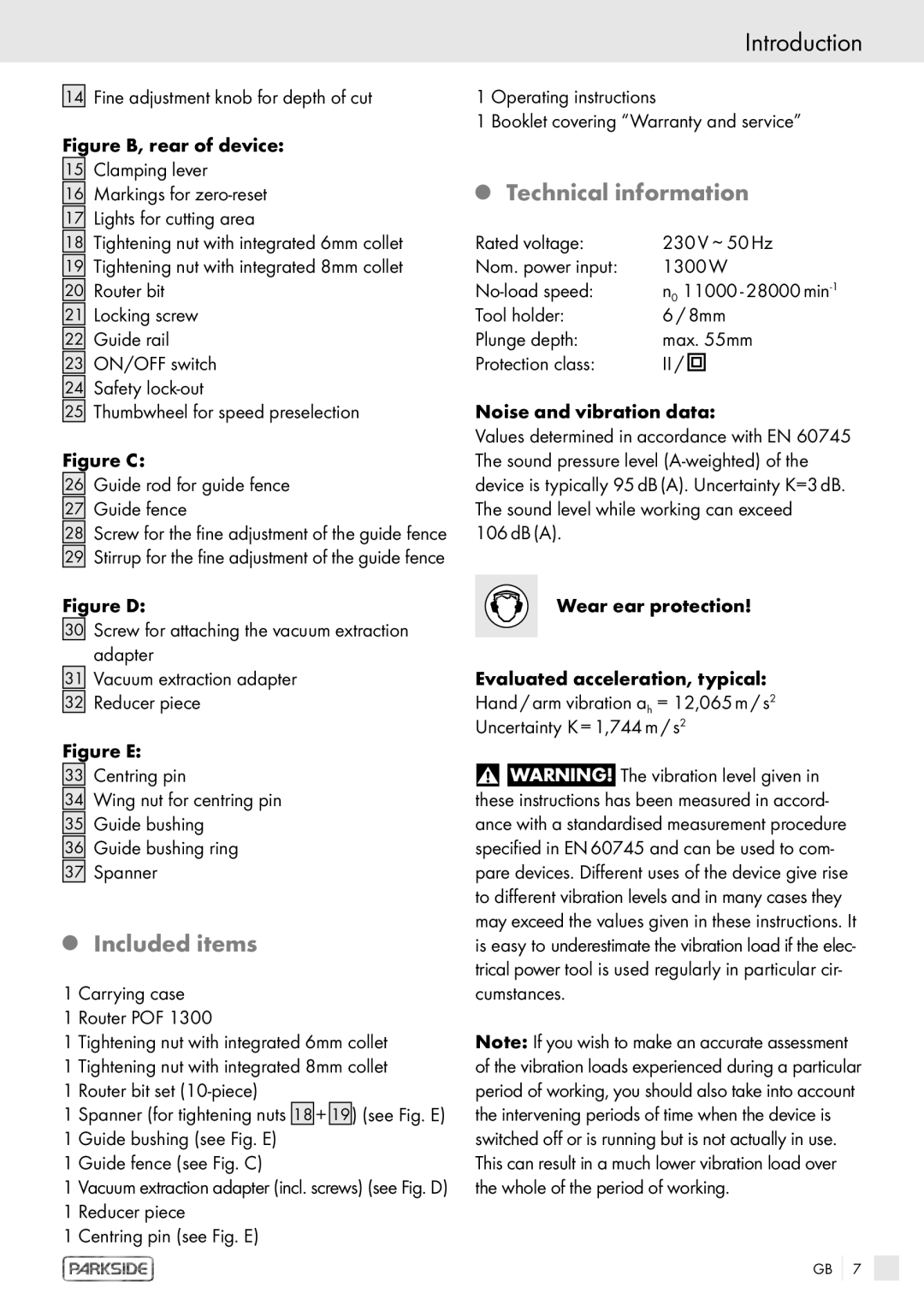
Introduction
14Fine adjustment knob for depth of cut
Figure B, rear of device:
15Clamping lever
16Markings for zero-reset
17Lights for cutting area
18Tightening nut with integrated 6mm collet
19Tightening nut with integrated 8mm collet
20Router bit
21Locking screw
22Guide rail
23ON/OFF switch
24Safety lock-out
25Thumbwheel for speed preselection
Figure C:
26Guide rod for guide fence
27Guide fence
28Screw for the fine adjustment of the guide fence
29Stirrup for the fine adjustment of the guide fence
Figure D:
30Screw for attaching the vacuum extraction adapter
31Vacuum extraction adapter
32Reducer piece
Figure E:
33Centring pin
34Wing nut for centring pin
35Guide bushing
36Guide bushing ring
37Spanner
QIncluded items
1 Carrying case
1 Router POF 1300
1 Tightening nut with integrated 6mm collet
1 Tightening nut with integrated 8mm collet
1 Router bit set
1 Spanner (for tightening nuts 18 + 19) (see Fig. E) 1 Guide bushing (see Fig. E)
1 Guide fence (see Fig. C)
1Vacuum extraction adapter (incl. screws) (see Fig. D)
1Reducer piece
1Centring pin (see Fig. E)
1 Operating instructions
1 Booklet covering “Warranty and service”
QTechnical information
Rated voltage: | 230 V ~ 50 Hz |
Nom. power input: | 1300 W |
n0 | |
Tool holder: | 6 / 8mm |
Plunge depth: | max. 55mm |
Protection class: | II / & |
Noise and vibration data:
Values determined in accordance with EN 60745 The sound pressure level
Wear ear protection!
Evaluated acceleration, typical: Hand / arm vibration ah = 12,065 m / s2 Uncertainty K = 1,744 m / s2
![]() Warning! The vibration level given in these instructions has been measured in accord- ance with a standardised measurement procedure specified in EN 60745 and can be used to com- pare devices. Different uses of the device give rise to different vibration levels and in many cases they may exceed the values given in these instructions. It is easy to underestimate the vibration load if the elec- trical power tool is used regularly in particular cir- cumstances.
Warning! The vibration level given in these instructions has been measured in accord- ance with a standardised measurement procedure specified in EN 60745 and can be used to com- pare devices. Different uses of the device give rise to different vibration levels and in many cases they may exceed the values given in these instructions. It is easy to underestimate the vibration load if the elec- trical power tool is used regularly in particular cir- cumstances.
Note: If you wish to make an accurate assessment of the vibration loads experienced during a particular period of working, you should also take into account the intervening periods of time when the device is switched off or is running but is not actually in use. This can result in a much lower vibration load over the whole of the period of working.
GB 7
